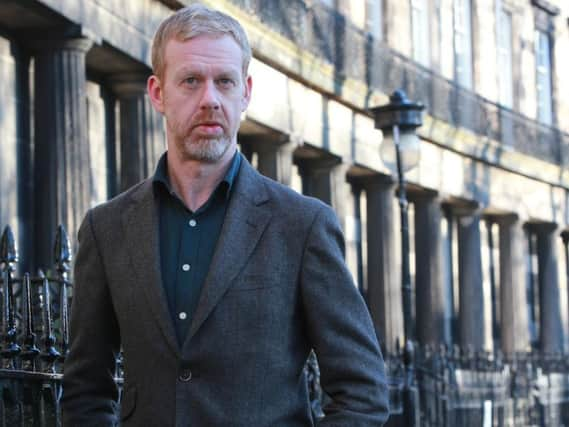Comment: Entrepreneurs creating impact as well as income


The month-long festival, supported by about 30 organisations across Scotland, is aimed at moving the nation’s entrepreneurial ecosystem onto the next level and kicked off back in April with EIE18 at the University of Edinburgh’s McEwan Hall on a glorious, sunny day in the capital.
Along the way, Entrepreneurial Scotland united Scottish and international business leaders at Gleneagles, the Scottish Council for Development and Industry held its annual forum and, in what was one of my highlights, FutureX ran a retreat at an Ayrshire castle to pore over what a more virtuous Scottish economy might look like.
Advertisement
Hide AdAdvertisement
Hide AdOver the piece, there have been occasional references to the Scottish Government’s National Performance Framework, an initiative I must admit I knew relatively little about until these last few weeks. Its purpose is to “focus on creating a more successful country with opportunities for all of Scotland to flourish through increased wellbeing, sustainable and inclusive growth” and on values it sets out that “we are a society which treats all of our people with kindness, dignity and compassion, respects the rule of law and acts in an open and transparent way”.
One of the main thrusts of the Can Do Fest this year has been around how Scotland’s business and entrepreneurial ecosystem can help enable real social impact and outcomes, and there appears to be a growing swell throughout the ecosystem that, excuse the pun, this can be done.
With a track record at Scottish Canals that includes transforming disused land into internationally-renowned phenomenon The Kelpies and, more recently, a marginalised community in the north of Glasgow into a thriving centre for the creative agencies, there is a lot of excitement around Steve Dunlop’s appointment at Scottish Enterprise and a feeling that he can help turn the vision of a new Scotland into reality.
Like some of our most storied entrepreneurs of recent times who have given back to society in a meaningful, enduring and disruptive manner, there are increasing signs that our enterprise agencies will get behind more radical changes to a structural status quo that continues to favour those who get a good start in life and is characterised by huge disparities in inclusivity and distribution of wealth.
Perhaps Scotland’s greatest chance to change the status quo comes via the next generation, millennials who simply won’t abide by the “we’ve always done it this way” approach to how we work and live in the 21st century. Impact Summit provided a platform for this narrative and, for those of us in attendance, I think the collective hope is that not only will it remain a fixture in the years ahead, but that we can also find a way of bringing even more people from every sphere of society into its fold. Because the bigger a movement becomes, the harder it is to resist.
At Impact Summit, Indy Johar of Dark Matter Labs talked about the need to bring more humanity into business. I had also heard Indy speak a fortnight before alongside Tomas Bjorkman, a Swedish investment banker and social entrepreneur who co-wrote The Nordic Secret around how societies can go through major technological, economic and structural changes without the wheels falling off; important stuff as we face what commentators describe as the Fourth Industrial Revolution.
If I had a wish list, Homeless World Cup founder Mel Young would be integral to as much high level decision-making in Scotland as possible. Young gave a spellbinding talk on how small causes like Fair Trade can turn into extraordinary global movements. As he has shown with the Homeless World Cup, by dreaming big and building partnerships, acorns really can turn into oak trees after all.
Nick Freer is a founding director at the Freer Consultancy and Full Circle Partners.